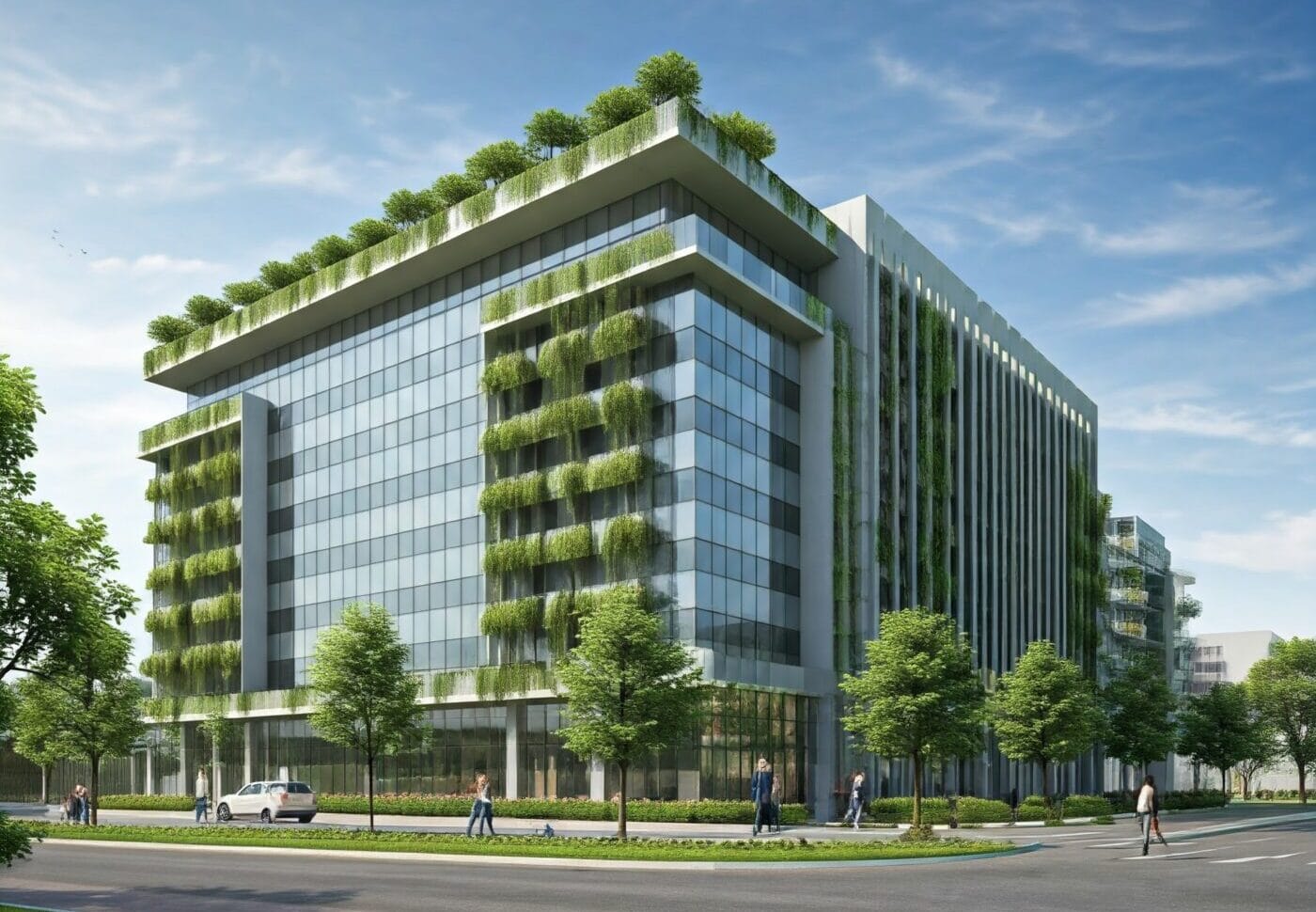
22 Jan Sustainable Practices in Real Estate Development in Nigeria
Introduction
Sustainability is no longer just a buzzword; it has become a necessity in the real estate industry worldwide. In Nigeria, where urbanization is rapidly increasing, sustainable practices in real estate development are crucial for preserving the environment, reducing waste, and ensuring long-term economic benefits. This article explores practical, sustainable strategies for developers in Nigeria and highlights their importance for the industry and society at large.
Why Sustainability Matters in Nigerian Real Estate
Nigeria faces several environmental challenges, including deforestation, pollution, and inadequate waste management. The real estate sector, being resource-intensive, significantly impacts the environment. By adopting sustainable practices, developers can:
- Reduce Environmental Footprint: Use fewer natural resources and minimize waste.
- Lower Costs: Sustainable practices often lead to lower operational costs, especially in energy and water usage.
- Enhance Market Appeal: Eco-friendly properties attract environmentally conscious buyers and investors.
- Improve Community Well-being: Sustainable developments create healthier living conditions for residents.

Sustainable Practices for Real Estate Developers in Nigeria
Green Building Materials
- Use eco-friendly and locally sourced materials such as bamboo, recycled wood, or compressed earth blocks.
- Opt for materials with low embodied energy, meaning less energy was used to produce and transport them.
- Partner with local suppliers to reduce costs and carbon emissions.
Energy Efficiency
- Incorporate solar panels and energy-efficient lighting like LEDs in building designs.
- Design buildings with natural ventilation and insulation to reduce dependence on air conditioning.
- For example, install smart thermostats that automatically adjust temperature settings based on occupancy patterns or deploy advanced energy monitoring software that provides real-time insights into electricity consumption, enabling swift action to optimize usage.
Water Conservation
- Install water-saving fixtures like low-flow faucets and dual-flush toilets.
- Implement rainwater harvesting systems for irrigation and other non-potable uses.
- Treat and recycle wastewater for landscaping and cleaning.
Sustainable Landscaping
- Use native plants that require minimal water and maintenance.
- Design landscapes to manage stormwater runoff and prevent soil erosion.
- Create green spaces to improve air quality and provide recreational areas for residents
Waste Management
- Minimize construction waste by recycling materials such as metal, wood, and concrete.
- Implement waste segregation systems in residential and commercial properties.
- Encourage tenants to adopt recycling habits through community programs and incentives.
Renewable Energy Integration
- Nigeria has abundant sunlight, making solar energy a practical and sustainable choice.
- Developments can incorporate hybrid systems combining solar and grid electricity to ensure reliability.
- Use solar-powered streetlights in residential estates to reduce reliance on the national grid.
Smart Technology
- Use IoT (Internet of Things) devices for energy and water monitoring. For instance, developers can install smart water meters that provide real-time data on water consumption, helping to identify leaks or inefficiencies quickly. Similarly, smart energy sensors can track electricity usage and send alerts to optimize resource allocation, reducing waste and costs.
- Implement smart building systems for efficient resource management.
- Enable remote control of lighting, heating, and cooling systems to minimize energy waste
Community Engagement
- Educate residents and workers about the importance of sustainability.
- Involve the local community in planning and execution to ensure developments meet their needs.
- Promote community initiatives like tree planting and clean-up drives.
Challenges in Adopting Sustainable Practices in Nigeria
While the benefits of sustainability are clear, developers in Nigeria face several challenges:
- High Initial Costs: Sustainable materials and technologies often have higher upfront costs, making them less appealing to cost-conscious developers.
- Limited Awareness: Many stakeholders lack knowledge about the long-term benefits of sustainability.
- Inadequate Policies: The absence of strict regulations and incentives discourages developers from adopting green practices.
- Infrastructure Deficits: Poor infrastructure, such as unreliable electricity and water supply, complicates the implementation of sustainable solutions.
The Future of Sustainable Real Estate in Nigeria
Despite these challenges, the future of sustainable real estate in Nigeria is promising. Government initiatives, such as the Nigeria Green Building Council, are working to promote sustainability in the sector. Increased awareness and demand for eco-friendly properties will also drive change.
Developers can lead the charge by incorporating sustainability into their projects and educating stakeholders about its benefits. Collaborating with international organizations and leveraging technology can further accelerate progress.
Conclusion
Sustainability in real estate development is not just about protecting the environment; it’s also a smart business strategy that can reduce costs, attract buyers, and improve community living standards. By embracing green building materials, energy efficiency, and innovative technologies, Nigerian developers can contribute to a healthier and more sustainable future. The time to act is now—because the future of real estate depends on it.


